Share
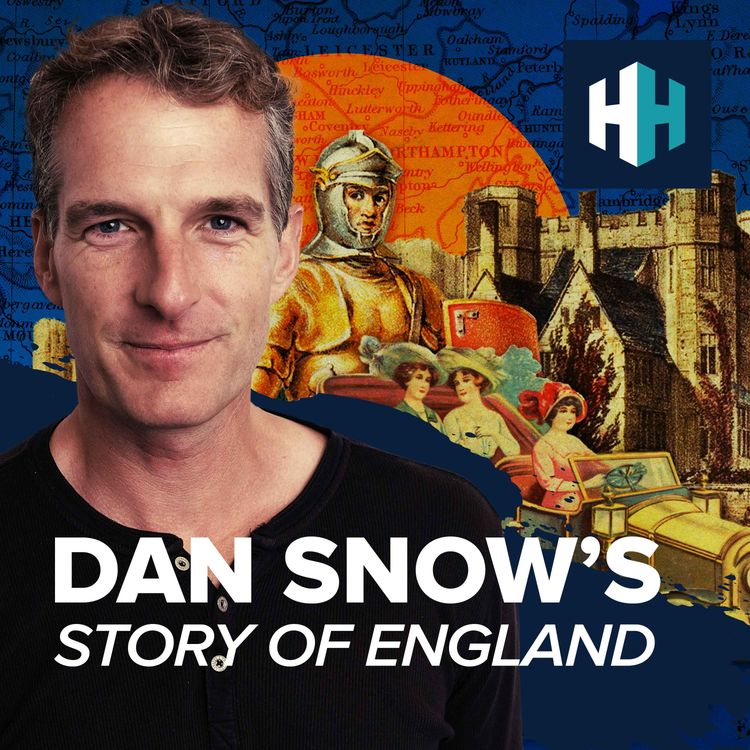
Dan Snow's History Hit
5. Story of England: Modern Warfare
From the First World War to the Cold War, conflict in the 20th century has been crucial in shaping England as we know it. This is the final episode of Dan’s epic adventure, taking him deep inside the famous White Cliffs of Dover with Gavin Wright, into the complex warren of tunnels that became the first line of England’s defence in WWII - overlooking the channel for the ships of modern invaders. He discovers how wars on distant frontlines changed life in England, from the very organisation of English society with Dan Todman, to the advent of modern medicine with Tim Cook. He then charts England's course from world wars to the Cold War, learning how the nature of conflict changed and speaking to Julie McDowall about the government's preparations for nuclear armageddon. He ends in York with Kevin Booth, underground once again in what was once a state of the art Cold War nuclear bunker, to look at how technology has changed England and the world.
Produced by James Hickmann, Mariana Des Forges, edited and sound design by Dougal Patmore and artwork by Teet Ottin.
If you want to get in touch with the podcast, you can email us at ds.hh@historyhit.com, we'd love to hear from you!
More episodes
View all episodes

1764. The Commanders: Rommel
01:07:17||Ep. 1764In the sands of North Africa, Erwin Rommel became a battlefield legend. His bold manoeuvres and audacious tactics captured the imagination of friend and foe alike. But how did he become that commander? Does he deserve his reputation for tactical brilliance, and how should we think about his legacy today?This is the first episode of our "Commanders" series, where we dig into the lives and decisions of five legendary WWII commanders. To guide us through the story of Rommel, we're joined by Saul David, historian and author of "Tunisgrad: Victory in Africa".Produced by James Hickmann and edited by Dougal Patmore.Dan Snow's History Hit is now available on YouTube! Check it out at: https://www.youtube.com/@DSHHPodcastSign up to History Hit for hundreds of hours of original documentaries, with a new release every week and ad-free podcasts. Sign up at https://www.historyhit.com/subscribe.You can also email the podcast directly at ds.hh@historyhit.com.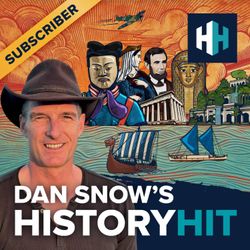
1763. The Ancient Greek World
41:42||Ep. 1763From the 8th century BC, waves of Greek settlers fanned out across the Mediterranean and Black Sea, driven by scarce land and rising populations. In southern Italy and Sicily - later known as Magna Graecia - they built cities that would rival and even outshine their homelands.Dan is joined by Tristan Hughes, host of 'The Ancients' podcast, to unpack the story of these powerhouse Greek hubs in Italy.Produced by James Hickmann and edited by Dougal Patmore.We'd love to hear your feedback - you can take part in our podcast survey here: https://insights.historyhit.com/history-hit-podcast-always-on.You can also email the podcast directly at ds.hh@historyhit.com.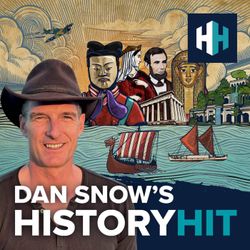
1762. The Forbidden City
01:15:12||Ep. 1762At the heart of Beijing sits the Forbidden City, one of the greatest architectural achievements in human history. It's the largest palace complex on Earth. Constructed in the early 15th century as the hidden heart of imperial power, it was a city within a city — sealed off from the world, governed by rigid ritual, political intrigue, and absolute authority.How did a daring coup bring this colossal complex into existence? What was daily life really like behind its towering walls? And, how did it endure revolution, the rise and fall of dynasties, and catastrophe to become a symbol of China itself? Dan travels to the heart of Beijing to reveal its extraordinary story. You can learn more in Dan's History Hit TV documentary 'Beijing Central Axis: China's Medieval Wonder'. Sign up to watch at: https://www.historyhit.com/subscribe.Produced by Mariana Des Forges and edited by Dougal PatmoreYou can email the podcast at ds.hh@historyhit.com.
NEW SERIES: THE COMMANDERS
01:41|Our world is shaped by decisions — bold, reckless, and often irreversible. And nowhere did choices matter more than in the Second World War, the deadliest conflict in human history. In our new mini-series starting on Monday March 2nd 2026, we step inside the war rooms where history was made by five towering commanders.With leading historians, Dan Snow unpack the strategies that reshaped continents — from Zhukov’s relentless Eastern Front offensives to Montgomery’s iron-tight control in the West.Make sure you follow Dan Snow’s History Hit to get new episodes every Monday in March!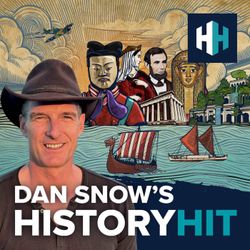
1761. The Trial of Charles I
41:46||Ep. 1761More than 350 years ago, something unprecedented happened in Britain: a reigning king was arrested, put on trial, and executed. You may have seen many news outlets refer to this historic event, given the current news agenda regarding Andrew Mountbatten-Windsor. We want to give you the history behind those headlines: what really happened in 1649, and how the English parliament came to pursue capital punishment for a reigning monarch? This episode from our archive dives into the extraordinary chain of events from Charles I's arrest to the moment of his execution. Dan is joined by Dr Rebecca Warren from the University of Kent for a day by day account of the trial and this dramatic case that still echoes through history to the present day. Dan Snow's History Hit is now available on YouTube! Check it out at: https://www.youtube.com/@DSHHPodcastSign up to History Hit for hundreds of hours of original documentaries, with a new release every week and ad-free podcasts. Sign up at https://www.historyhit.com/subscribe.You can also email the podcast directly at ds.hh@historyhit.com.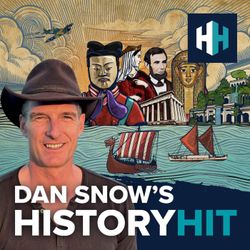
1760. Royal Siblings, Scandals and Crises
28:11||Ep. 1760The arrest of Andrew Mountbatten-Windsor, formerly Prince Andrew (who denies any wrongdoing and is innocent until proven guilty), has encouraged news outlets to look at the precedent of royals falling foul of the law. Many have referred to the trial and execution of Charles I over 350 years ago as the last British royal to be arrested, but that isn't technically the case...in this bonus episode, Dan gives a potted history of the many times royals - princes in particular - have found themselves in trouble with the law and with their monarch siblings. From the rivalries of the Anglo-Saxon and Norman kings to the scandals of the Plantagenets and the Georgians, this is a tumultuous account of Britain's monarchy through the ages. Written by Dan Snow, produced by Mariana Des Forges and edited by Dougal Patmore.Dan Snow's History Hit is now available on YouTube! Check it out at: https://www.youtube.com/@DSHHPodcastSign up to History Hit for hundreds of hours of original documentaries, with a new release every week and ad-free podcasts. Sign up at https://www.historyhit.com/subscribe.You can also email the podcast directly at ds.hh@historyhit.com.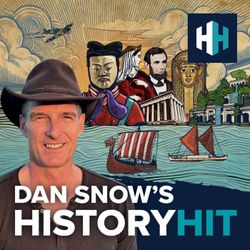
1759. The Peasants' Revolt
43:26||Ep. 1759In 1381, after plague, famine and war had pushed England to the brink, a final blow sparked an extraordinary uprising. This episode explores the Peasants’ Revolt, not as a chaotic riot, but as a coordinated challenge to royal and religious power in England.To cut through the myths, we're joined by medieval historian Dr Eleanor Janega, co-host of the 'Gone Medieval' podcast. She explains what really happened, why it mattered, and how this rebellion sent shockwaves through medieval England and beyond.Produced by Mariana Des Forges and edited by Dougal Patmore.Dan Snow's History Hit is now available on YouTube! Check it out at: https://www.youtube.com/@DSHHPodcastSign up to History Hit for hundreds of hours of original documentaries, with a new release every week and ad-free podcasts. Sign up at https://www.historyhit.com/subscribe.We'd love to hear your feedback - you can take part in our podcast survey here: https://insights.historyhit.com/history-hit-podcast-always-on.You can also email the podcast directly at ds.hh@historyhit.com.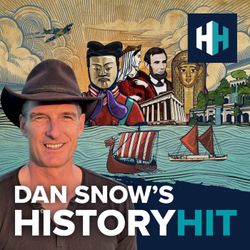
1758. The First Vikings in Iceland
39:32||Ep. 1758From icy seas to fire-lit longhouses, Dan heads to Iceland to trace the birth of one of the world’s most unique medieval cultures — at the very edge of the known world. He joins experts across the country to discover how those early Vikings survived brutal winters in total isolation, save for their tight-knit communities and (surprisingly) warm turf houses. He explores the remarkable medieval chronicle Book of Settlement (Landnámabók) and the dramatic stories preserved in the Sagas of Icelanders (Íslendingasögur) that tell us who the first settlers were, where they came from, and how they carved out a new society on a raw volcanic island.Produced by Anne-Marie Luff and edited by Dougal PatmoreYou can see Dan's adventures in Iceland in his brand new documentary on History Hit. Sign up to watch the mini-series Icelandic Vikings here: https://www.historyhit.com/subscribe.If you'd like to explore Iceland yourself, head to https://www.visiticeland.com/You can email the podcast directly at ds.hh@historyhit.com.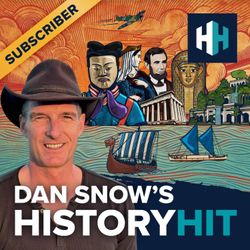
1757. The Picts
36:33||Ep. 1757Who were the Picts, the warriors who stalked Rome’s northern frontier and refused to be conquered? In this episode, we explore how they resisted empire, expanded their power across northern Britain, and built a kingdom of their own. Finally, we tackle the great mystery - why did the Picts disappear?For this, we're joined by Professor Gordon Noble, Senior Lecturer in Archaeology at the University of Aberdeen.Produced by James Hickmann and edited by Dougal Patmore.We'd love to hear your feedback - you can take part in our podcast survey here: https://insights.historyhit.com/history-hit-podcast-always-on.You can also email the podcast directly at ds.hh@historyhit.com.